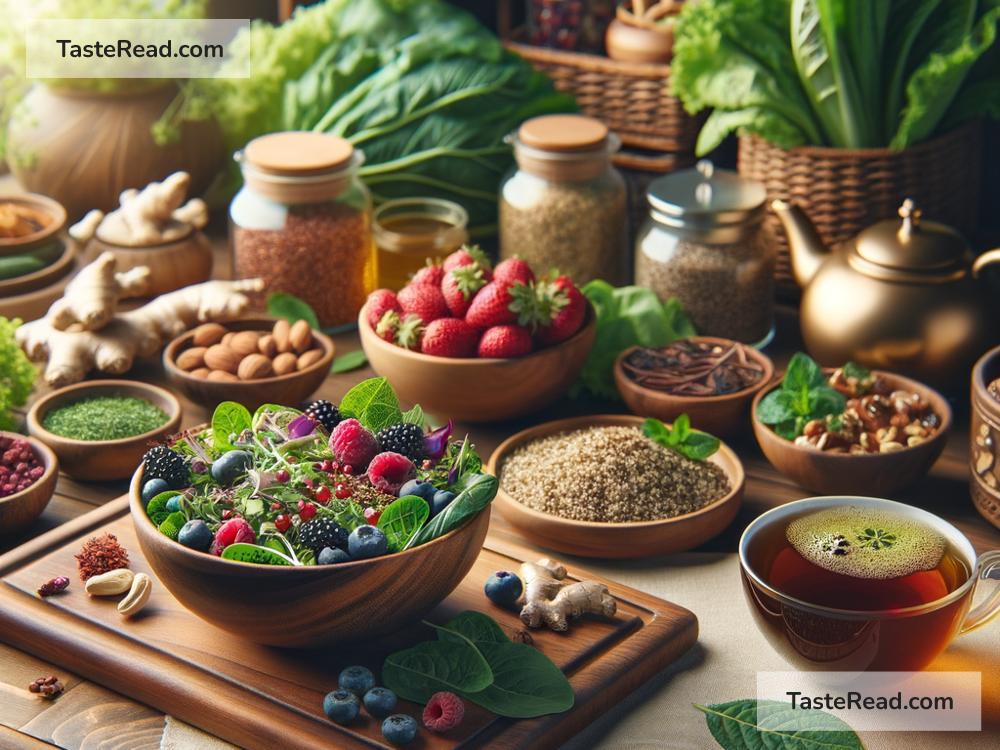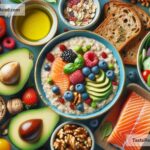Foods to Help Reduce Treatment Fatigue: Eat Your Way to Feeling Better
When you’re going through treatments like chemotherapy, radiation, or dealing with a long-term illness, feeling tired is common. This tiredness, also called “treatment fatigue,” can make it hard to stay active or motivated. While medical treatments and rest are essential, the food you eat can also help your body feel stronger and more energetic. Choosing the right foods can go a long way in reducing fatigue and boosting your recovery.
Here are some simple and tasty foods that can support your energy and improve how you feel during treatment.
1. Power Up With Whole Grains
Whole grains like brown rice, quinoa, oats, and whole wheat bread are great sources of energy. Unlike white bread or sugary snacks that give you a quick burst of energy followed by a crash, whole grains release energy slowly. This helps keep your body fueled for longer periods, so you don’t feel as tired.
Try starting your day with oatmeal topped with bananas or almond butter. For lunch or dinner, swap white rice for brown rice or add quinoa to salads. These small changes can make a big difference in how energized you feel.
2. Go Nuts for Nuts and Seeds
Nuts and seeds, such as almonds, walnuts, chia seeds, and flaxseeds, are rich in healthy fats, protein, and nutrients that support your energy levels. They also contain magnesium, which helps your muscles relax and promotes better sleep—a key factor in fighting fatigue.
Keep a small bag of mixed nuts or trail mix with you as a snack during the day. Sprinkle chia or flaxseeds on yogurt, smoothies, or soups for an easy energy boost.
3. Fresh Fruits for a Quick Boost
Fruits are nature’s candy, providing your body with vitamins, minerals, and natural sugars for quick energy. Bananas, oranges, apples, and berries are especially helpful because they require little preparation and contain nutrients like vitamin C and potassium. These nutrients are good for your immune system and can help reduce the tired feeling that comes with treatment.
If you’re too tired to cook, try blending fruits into a smoothie. You can mix your favorite fruits with some spinach or kale for extra nutrients. Smoothies are easy to drink and give you energy on the go.
4. Vegetables for Vital Energy
Never underestimate the power of vegetables! Leafy greens like spinach and kale, as well as hearty options like sweet potatoes and broccoli, are packed with vitamins and antioxidants that combat fatigue. They also help your body repair itself and keep your immune system strong.
Roast or steam veggies to make them easy to digest. Pair them with lean protein like chicken or fish for a balanced, energizing meal. If cooking feels overwhelming, frozen vegetables are an excellent alternative—just heat them up and enjoy.
5. Lean Proteins for Strength
Protein is essential for repairing your muscles and helping your body recover during treatment. Good sources of lean protein include chicken, turkey, eggs, fish, tofu, and beans. Protein doesn’t just help repair your body—it keeps you full longer and provides lasting energy.
For an easy meal, make scrambled eggs with spinach for breakfast, or grill some chicken or salmon for dinner. If you’re vegetarian, lentils, chickpeas, and tofu are excellent options that are just as effective.
6. Stay Hydrated With Water and Herbal Teas
Drinking enough water is just as important as eating the right foods. Dehydration can easily make you feel weak and tired. Aim to drink plenty of water throughout the day and avoid sugary drinks like soda, which can lead to energy crashes.
If plain water gets boring, try adding slices of cucumber, lemon, or berries for extra flavor. Herbal teas, like ginger or chamomile, are also soothing options that help you stay hydrated.
7. Healthy Fats for Energy and Brain Health
Fat isn’t always the enemy! Healthy fats found in avocados, olive oil, fatty fish like salmon, and nuts are great for providing long-lasting energy. These fats can also support brain health, which might help reduce the mental fatigue that comes with treatment.
A simple way to incorporate healthy fats is to drizzle olive oil on salads or roasted vegetables, add avocado slices to sandwiches, or snack on a handful of nuts between meals.
8. Iron-Rich Foods to Combat Weakness
Iron is an important nutrient that helps your blood transport oxygen throughout your body. Low iron levels can lead to tiredness and weakness, so adding iron-rich foods to your diet can be a big help. Spinach, beans, lentils, red meat, and fortified cereals are great choices.
Pairing iron-rich foods with those high in vitamin C, like oranges or strawberries, can help your body absorb the iron better. For example, you can add spinach to a smoothie with orange juice for a refreshing and energizing snack.
Conclusion: Food Can Be Medicine Too
Treatment fatigue can be tough to manage, but what you eat can make a huge difference. By adding whole grains, lean proteins, fruits, vegetables, nuts, seeds, and healthy fats to your meals, you’re giving your body the tools it needs to fight fatigue and recover more effectively. Don’t forget to stay hydrated with water and herbal teas, and keep your meals simple if you’re feeling too tired to cook.
Remember, small changes to your diet can have a big impact on your energy and overall well-being. Listen to your body, choose foods that are easy to prepare, and don’t hesitate to ask for help if cooking feels overwhelming. With the right nutrition, you’ll feel more energized and better equipped to handle the challenges of treatment. Eat well, rest up, and take it one day at a time!


